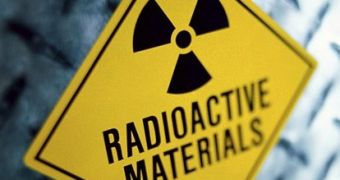There is no way Tepco can handle the decommission of the Fukushima nuclear plant on its own. This much is clear. Still, Greenpeace says that, all things considered, the US' thinking about getting involved and lending Tepco a helping hand isn't as great as it sounds.
Long story short, Greenpeace says that, when it offered to aid Tepco decommission the nuclear facility, the US was being cynical. What's more, the organization claims that the country had a hidden agenda, i.e. protecting the nuclear industry.
“Before the US will provide assistance, Japan has to sign the Convention on Supplementary Compensation for Nuclear Damage (CSC). This is an international treaty that supposedly provides an international regime on nuclear liability – the who-should-pay-for-a-nuclear-accident issue,” the organization argues on its official website.
“But the real aim of the CSC, along with other international conventions on nuclear liability, is to protect the nuclear industry. It caps the total compensation available after a nuclear accident at a level much lower than the actual costs,” the organization adds.
What Greenpeace means is that, according to such conventions, the good folks that supply nuclear reactors and other materials used at facilities such as Fukushima don't have to pay any damages in case of an accident.
Courtesy of the CSC, this responsibility, which should lie with the nuclear plant operators, becomes no-man's land, the environmentalists maintain.
“The operators of nuclear plants are the only ones accountable for paying damages but the CSC protects them too by not requiring them to have enough money or financial security to cover the costs of an accident,” Greenpeace says.
“Japan signing the CSC would have two important benefits for the US: 1. It would reduce the chances that GE [reactor seller] can be sued for damages from the Fukushima accident, and 2. It could secure future business opportunities in Japan for American nuclear suppliers,” the organization adds.
It goes without saying that, under such conventions, taxpayers are the ones who end up paying when the time comes for cleanup operations to be carried out in the aftermath of one nuclear incident or the other.

 14 DAY TRIAL //
14 DAY TRIAL //